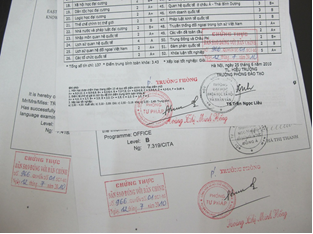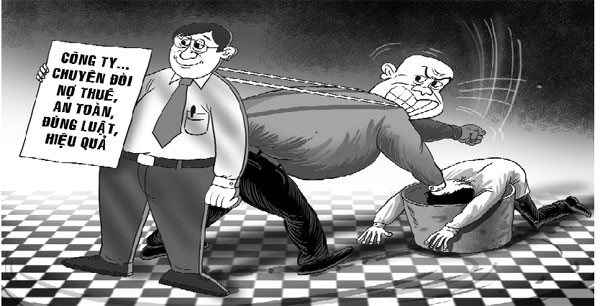The 2014 Civil Status Law officially took effect on January 1, 2016. The law features several new points compared to previous regulations, aimed at facilitating convenience for the public, including 5 notable highlights.

Issuing Identification Numbers Upon Birth Registration
2014 Civil Status Law stipulates the creation of an electronic civil status database to store personal civil status information (alongside a paper database), and connecting to provide basic civil status information of individuals to the National Population Database.
Birth certificates and Personal Identification Numbers will be issued to the person being registered at the time of birth registration. The Personal Identification Number assigned to each Vietnamese citizen aims to encode their basic information, ensuring it is unique to that individual and managed within the National Population Database.
For individuals under the age of 14, the Personal Identification Number will be recorded on the Birth Certificate and will serve as the citizen ID number when they reach the eligible age for ID issuance.
Personal civil status information will be centrally and uniformly managed; ministries, sectors, and localities will use citizen information from the National Population Database for administrative management purposes (without re-entering the information) as well as to process administrative procedures for residents.
Clearly Defining Civil Status Registration Content
The 2014 Civil Status Law has more clearly and specifically defined the contents of civil status registration; distinguishing which events are Confirmations in the Civil Status Book and which events are Entries in the Civil Status Book. Accordingly:
- Confirmation in the Civil Status Book includes confirming the following civil status events: Birth registration; Marriage; Guardianship; Acknowledgement of parent-child relationship; Civil status changes, corrections, ethnic re-determination, addition of civil status information; Death registration.
- Entries in the Civil Status Book involve recording changes in personal civil status according to court judgments or decisions by competent state authorities, including: Changing nationality; Determining parent-child relationship; Gender re-determination; Adoption, termination of adoption; Divorce, annulment of illegal marriage, recognition of marriage; Recognition of guardianship; Declaration or annulment of declaration of a person as missing, deceased, incapacitated, or with limited civil capacity.
- Entries in the Civil Status Book for events such as birth registration, marriage, divorce, annulment of marriage, guardianship, recognition of parent-child relationship, adoption, civil status change, death registration of Vietnamese citizens resolved at competent foreign agencies.
- Confirmations or entries in the Civil Status Book for other civil status matters as prescribed by law.
Simplifying Civil Status Registration Procedures
Individuals have the right to choose the civil status registration office without being dependent on their place of residence, as previously required. According to the law, individuals can register their civil status at the registration office where they permanently reside, temporarily reside, or currently live, and can choose the registration method such as direct submission, postal mail, or through the online registration system. For civil status matters not stipulated with a specific timeframe in this law, they will be resolved within the same day.
Timeframe for resolving civil status registration: In cases where the application is received after 3 PM and cannot be resolved immediately, results will be provided on the next working day.
Exemption of Civil Status Registration Fees
Civil status registration fees are exempted for the following cases: Registration for individuals from families credited with services to the revolution; individuals from poor households; persons with disabilities.
Timely birth and death registrations, guardianship, marriage registration of Vietnamese citizens residing domestically.
Individuals requesting the registration of civil status events beyond the abovementioned regulations, or requesting copies of excerpts from the civil status register, must pay fees.
Clearly Defining Civil Status Registration Authority
The Civil Status Law clearly delineates the authority of commune-level People's Committees, district-level People's Committees, and Vietnamese representative offices abroad. Whereas previously, the commune-level People's Committee at the mother's place of residence was given priority for birth registration, the 2014 Civil Status Law broadens this to include both the mother's and father's place of residence.
The authority for civil status registration involving foreign elements will be assigned to district-level People's Committees, instead of falling under the purview of provincial-level People's Committees.
Source: Plo.vn
 Article table of contents
Article table of contents









